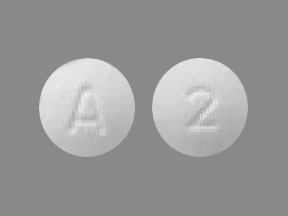
Melphalan Coupons & Savings Card – Discount Prices from $461.32
Generic for: Alkeran
My prescription
Edit
2MG, Melphalan (50 Tablets)
Select pharmacy

Walgreens
$461.32
COUPON PRICE
Albertsons
$522.42
COUPON PRICEMelphalan savings card
Show this card to your pharmacist
Walgreens
$461.32
BIN
ID
PCN
GRP
015995
LHKPU641024
GDC
DR33
Powered by
More prescriptions for ovarian cancer
More prescriptions for ovarian cancer
Melphalan dosage forms
Dosage Quantity Price from Per unit 2MG 50 Tablets $520.19 $10.40
| Dosage | Quantity | Price from | Per unit |
|---|---|---|---|
| 2MG | 50 Tablets | $520.19 | $10.40 |
Melphalan Warnings
Melphalan, also known as Alkeran, is a medication used in cancer treatment. It is essential to be aware of several potential risks and precautions associated with its use. Below is a list of critical safety information and warnings:
Administration by Professionals: Melphalan must be administered by a healthcare professional skilled in chemotherapy management. Treatment should occur in a medical facility equipped to monitor side effects and provide necessary care.
Decreased Blood Cell Counts: This medication can significantly lower your red and white blood cell and platelet counts, heightening the risk of anemia, infections, and bleeding. The risk is elevated if you have had prior chemotherapy or radiation. Inform your healthcare provider if you experience symptoms like unusual tiredness, easy bruising, or infections.
Risk of Secondary Cancers: There is a rare possibility of developing new cancers, such as blood cancers, with melphalan use. Discuss these risks with your healthcare provider to understand your individual risk profile.
Allergic Reactions: Though uncommon, allergic reactions to melphalan can occur and may be severe. Symptoms can include throat tightness, breathing difficulties, hives, swelling, rapid heartbeat, or dizziness. Seek immediate medical attention if these occur.
Effects on Pregnancy and Fertility: Melphalan can harm an unborn child and may affect fertility in both men and women. Women who can become pregnant should avoid doing so during treatment. Notify your healthcare provider immediately if pregnancy occurs during treatment.
Special Considerations: Always discuss the benefits and risks of melphalan with your healthcare provider, especially if you have pre-existing health conditions or concerns about fertility and pregnancy.
For any concerns or questions about the risks associated with melphalan, it is crucial to consult with your healthcare provider. In the event of a suspected overdose, seek emergency medical assistance promptly.
Melphalan Side Effects
Common side effects:
- Nausea
- Vomiting
- Diarrhea
- Mouth ulcers
- Loss of appetite
- Temporary hair loss
Less common but important to monitor:
- Shortness of breath
- Stopped menstrual periods in women
- Signs of liver problems (abdominal pain, yellowing eyes or skin, dark urine)
- Low blood cell counts (susceptibility to infections, bleeding or bruising)
Serious side effects:
- Severe allergic reactions (rash, itching, swelling of face or throat, severe dizziness, trouble breathing)
